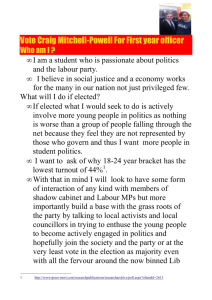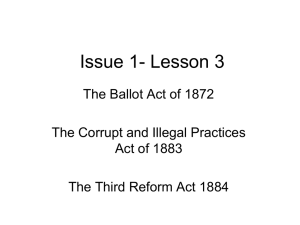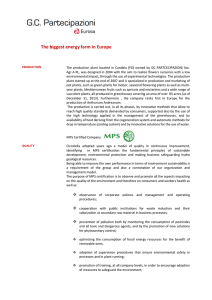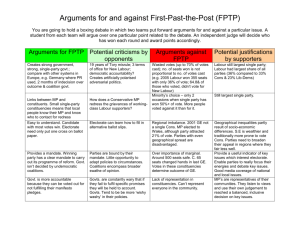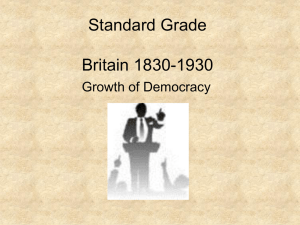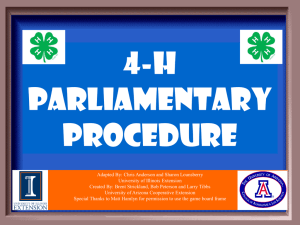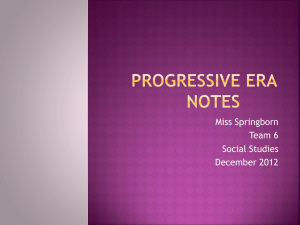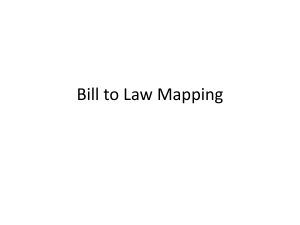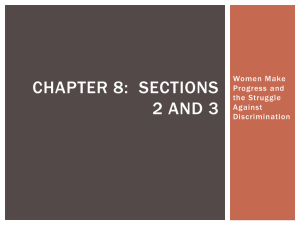File - Kingussie High School Social Subjects
advertisement
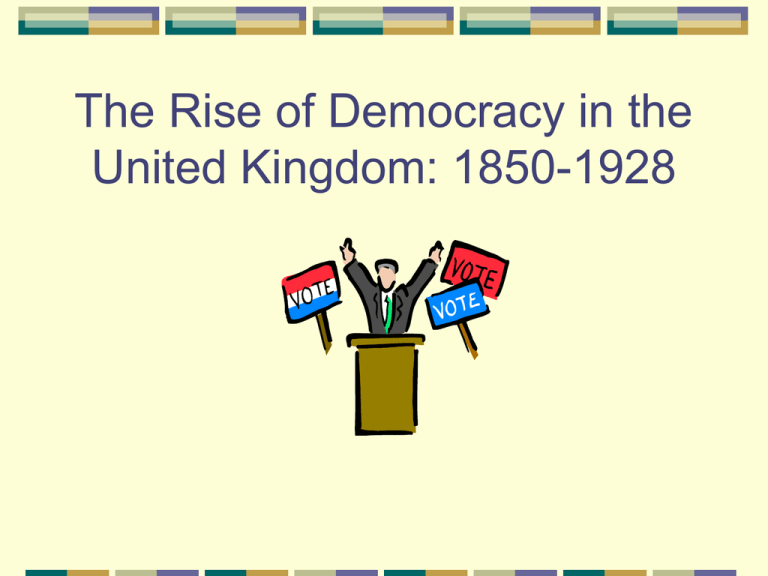
The Rise of Democracy in the United Kingdom: 1850-1928 Reasons for Initial Changes Shift in population – rural to urban Better education and rise in literacy French Revolution showed what ‘people power’ could do Rise of Middle Class businessmen Reform groups were set up early C19, e.g. Birmingham Political Union (1830) The Chartists Early Changes (pre-1850) 1929 – Roman Catholics were given the right to become MPs 1832 Reform Act (Great Reform Act): fierce opposition but passed on third attempt. Mainly affected Middle Class men in boroughs. Electorate increased by approximately 280,000 and some towns gained an MP Other C19th Reforms Second Reform Act, 1867: Passed by Disraeli (Conservative Party) Disreali did not want to include w.c men, but felt the need to extend the franchise because of agitation in the country Householders with 1 years residence could vote Lodgers living in accommodation worth £10 pa could vote (£5 in counties) Occupiers of premises with rateable value of £12 pa were granted the vote 52 More seats became available to cities, towns and universities Scotland gained 15 MPs Electorate rose to 2.5 million from just over 1 million Gave more working class men the vote than had been intended – implications for future campaigning. Representation of the People Act 1884 Passed by Gladstone (Liberal Party) Liberals were a party of reform Did not go as far as Liberals hoped Electorate rose to 5 million All householders and lodgers paying £10 per year could vote (boroughs and counties) 2/3 of all men in England could vote The way people voted Changed dramatically in 1872 with the Secret Ballot Act – got rid of the hustings and intimidation. (Gladstone) The Corrupt and illegal Practices Act of 1883 dealt with corruption during campaigns. (Gladstone) The sizes of Constituencies Redistribution of Seats Act 1885 aimed to make constituencies equal sizes Total number of MPs rose to 670 from 652 Scotland gained 72 seats Universities kept 2 seats Notable changes were felt in cities like Glasgow – gained 4 MPs Early C20 Changes Choice for working class voters increased with the formation of the Labour Party in 1903 Rise in Trade Union membership 1911 brought the Parliament Act which achieved three things: i) MPs received a salary ii) length of parliament reduced to 5 years from 7 iii) House of Lords could no longer reject Bills indefinitely women Representation of the People Act 1918 gave women over the age of 30 (and all remaining men over 21) the vote Representation of the People Act 1928 gave the remainder of females over 21 the vote Arguments over women’s suffrage: war, suffrage movements or natural progression? Pressure Groups The Social Democratic Federation SDF The Fabian Society The TUC WSPU NUWSS New Liberalism Labour Party/working men clubs Possible Questions? “To what extent was Britain a democracy at the outbreak of World War One?” “Explain why Parliament gave the right to vote to increasing numbers of people between 1867 and 1928” “How important was the role of political pressure groups in the growth of democracy between 1860 and 1914?”


